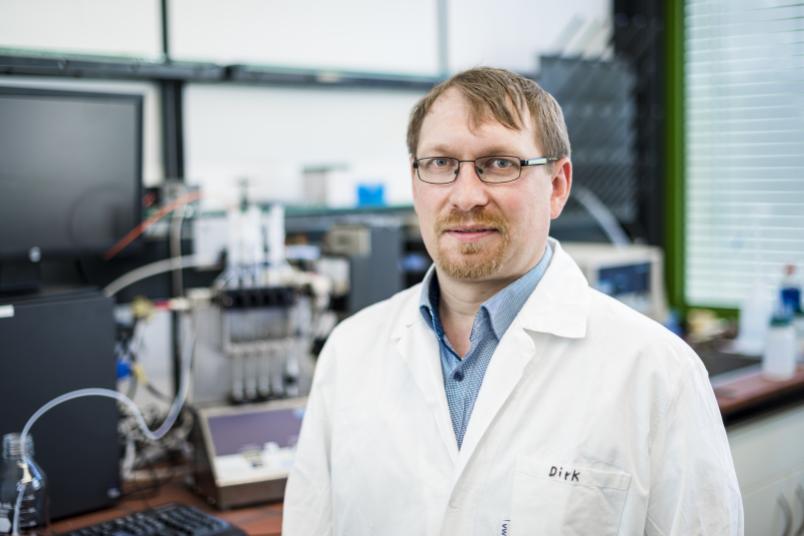
Funding
New doctoral network in biology
Enzymes are indispensable in industry, for example in the production of pharmaceuticals. The new network provides a platform for doctoral students to search for new, sustainable biocatalysts.
The RUB Faculty of Biology and Biotechnology is involved in a new doctoral network, which the European Commission is funding with 2.7 million euros as part of the Marie Skłodowska-Curie Actions. Within the “BiodeCCodiNNG” network, 260,000 euros are flowing to RUB for a project on enzyme catalysis. Professor Dirk Tischler, head of the Microbial Biotechnology research group, is supervising the project.
In the doctoral network – formerly known as innovative training network – nine research institutions and ten companies in Europe are cooperating to train visionaries in the field of sustainable enzyme technology. Ten doctoral students will be members of the network between 2023 and 2026. The aim is to explore innovative approaches to biocatalysis in an interdisciplinary context in an application-oriented way. The discovery of new biocatalysts, their description and application will be driven by the university’s industrial partners and their specific research questions. In the process, the doctoral students will deepen aspects of their research by working with various partners in the network and thus become acquainted with different industrial and research institutions. The Groningen Research Institute of Pharmacy coordinates the network.
New catalytic approaches
The enzyme catalytic processes that are developed in the network are meant to help open up new chemical reactions that are not feasible with current catalysts, for example in the field of drug synthesis. Overall, the team hopes to enable new industrial concepts by making these processes more sustainable. The network name “BiodeCCodiNNG” hints at the types of chemical reactions involved: namely, those that form bonds between two carbon atoms (C-C bonds) or between two nitrogen atoms (N-N bonds).
The RUB project
The researchers in the Microbial Biotechnology Group will mainly focus on the enzymatic activation of amino groups (chemically expressed as: -NH-). They hope this will enable the formation of new N-N bonds in the context of enzyme cascades. Enzyme discovery, biochemistry, protein engineering and, of course, biocatalysis play a major role here.
Numerous industrial partners are assisting with the production of optimised biocatalysts and their stabilisation, as well as process analytics. “We are looking forward to the challenge and opportunity to become active within this innovative, international network,” says Dirk Tischler. “The basis for the project is our experience in the field of special enzyme catalytic reactions. The question now is: can we also make complex metabolic pathways usable for targeted biocatalyses?”